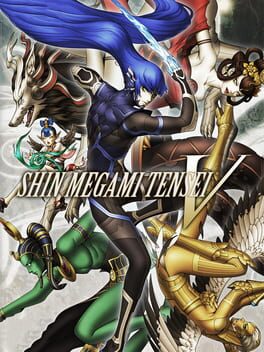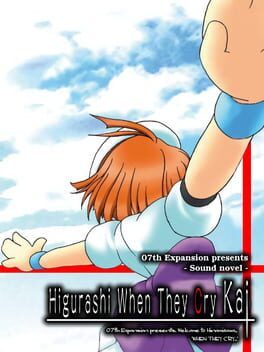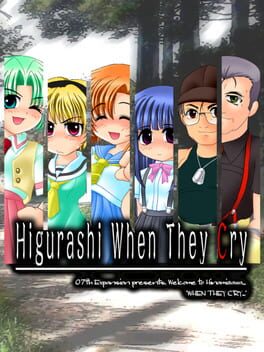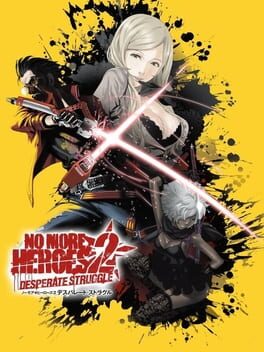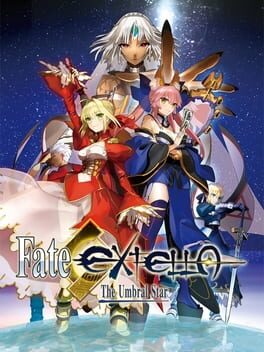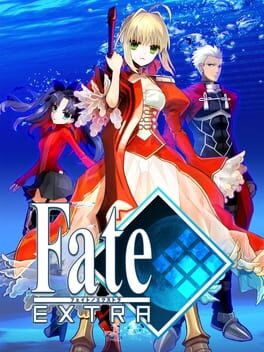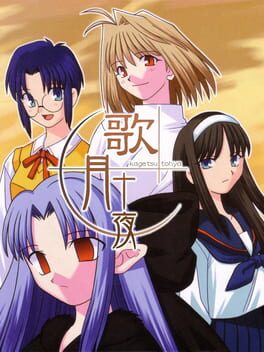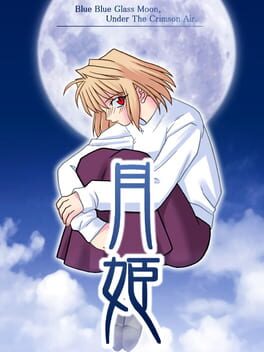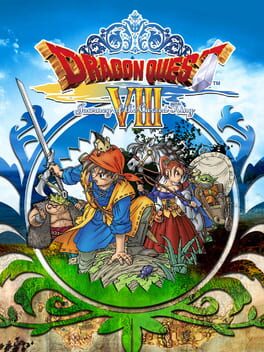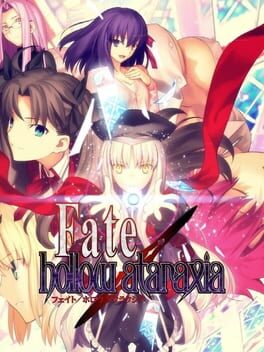Zemania
This review contains spoilers
Subahibi is a complex game, on the surface a long and superficial philosophical exposé punctuated by scenes of unprecedented violence and cruelty, but in reality, a story of unequaled depth.
"Diskontinuierliches Dasein". The contemporary meaning of the word Dasein was developed by the philosopher Martin Heidegger. It is how he was referring to the human being, a being aware of his own metaphysical specifities.
1. Heideggerian interpretation of chapter 1-3
Both DTRH2 and It's my Own Invention propose, in their slow spiraling descent into chaos, a methodology similar to the one of Martin Heidegger in Sein und Zeit.
Before going on with the dialogue between these two works, one must keep in mind the ontological distinction between Being (das Sein) and beings (das Seiende). Basically, the beings (the Seienden) are everything that is, that exists: a table, a computer, a man, the sky... Whereas the Being describes the very fact of being a being (a Seiende), of existing: the fact that the sky is the sky, that man is man, the fact that there is something rather than nothing.
Starting from this distinction (greatly inspired by Schopenhauer's in "The World as Will and Representation"), Heidegger founds a new method to analyze and understand reality. He distinguishes four ways of approaching and studying our world:
(1) A classical approach, which he calls ontic. This one only deals with beings. To understand the sky, one must analyze the composition of the air, of the sun's rays. To understand a man, one must look at his socio-economic dispositions, his professional background, etc. This is generally the dimension of pure science and most social sciences. Art prefers to go deeper.
(2) The second method is already aware of the difference between what is (the beings) and the fact of existing for the beings (the being, the Sein): it is the fundamental ontology. We are aware that our world is not based on anything tangible, that by going too far up the chain of causality, we arrive at nothingness, the complete mystery (what Schopenhauer calls the world of the will, what Nietzsche calls the will to power, what Freud calls the unconscious drives, etc.).
In Higurashi for example, Ryukishi develops a fundamental ontological examination: the narrative does not ask who is the killer, but rather what creates the killer? Answer: the abyss in us, the monster in us. Dostoevsky in Crime and Punishment too. They look for the causes inside this world of the will, which is free of any rationality. But we know for a fact that we can't understand it. So we contemplate its mystery and let it devour us.
(3) The ontotheology. Even if Heidegger was the first to synthetically formulate this paradigm, he was not the first in history to realize that universal contingency (the fact that all our reality is fundamentally based on nothing, it could be, but it could also not be). Ontotheology consists in going beyond this problem by positing the existence of God. This is what the Cartesians (Descartes and his friends) did.
It is rarer to find this vision of metaphysics in art, but it is not inexistent for all that. Here is an excellent article examining the links between Subahibi (and the other works of Sca-Di) and ontotheology: https://beneaththetangles.com/2018/04/25/sca-di-and-the-question-of-god/
One can also extend the divine conception by simply considering the establishment of a first cause as omniscient and omnipotent. This is the case of Takuji's mother in It's my Own Invention: her power (even "imaginary") is the cause of Takuji's whole world, his whole being (Seiende) revolves around her influence. She knows everything, hears everything, and can do everything.
(4) But Subahibi goes further, much further. What if, when confronted with the abyss, we decided neither to turn back (ontic), nor to simply admire its depth (fundamental ontology), nor to stretch a rope to overcome it (ontotheology), but to analyze it methodically? Sca-Di proposes an ontology (simply “ontology”) by trying to draw up, in the manner of Heidegger, the analysis of what makes beings beings (what makes them exist). What makes the "real world" real?
In DTRH2 and IMOI, Yuki and Takuji both see their reality collapsing little by little, and are forced to examine it, not by conventional methods (counting days, questioning their entourage) but by a deeper approach in its metaphysics: they wonder about their human finitude, about their relation to time, to their Wonderful Everyday.
That's the method, and what about the answer? What did Yuki mean by "Live happily"? To find happiness in the calm of everyday life despite all its problems - and not to look for any metaphysical meaning in an afterlife - since death does not exist (since it belongs to the realm of being/Sein, which is beyond us)?
This is the real challenge to overcome and probably even the limit to a Heideggerian reading of Subahibi. For Heidegger, the acceptance of death constitutes the foundation of happiness because it alone allows one to live each moment with acuity and lucidity. But he does not glorify death for all that; rather the fact of confronting it by assuming one’s being.
Another attempt to respond to the "Live happily!" that came to me before I reached the first ending was our relation to our temporality. Heidegger tried (but he admitted himself he did not succeed) to answer the mystery of being by an analysis of the links between temporality and the human being. I was thinking of the title "Wonderful Everyday", of existential authenticity, of the anguish of everyday life... And of chatter (das Gerede), a notion that bridges well with Subahibi's second reading, based on a philosophy of language and communication (Wittgenstein here we are, at last).
Side note: Sartre's thought is also referenced quite a few times in IMOI: the existential anguish due to the awareness of the universal contingency (Sartre's nausea is heavily present in the infamous scenes of psycho trip delirium), the speech of the demiurge that is Ayana to the Wakatsuki twins in IMOI introduces well the ideas of "Existentialism is a humanism"... And Sartre is in the worthy philosophical heritage of Heidegger.
Subahibi posits the necessity to rethink man from his finitude. Traditionally, philosophy has always defined man in relation to his rationality (characters of Higurashi try to unveil the mystery through reasoning) and has forgotten that he is fundamentally a being conscious of his finitude (characters of Subahibi instead cannot rely on their reasoning because they have realized that it is not based on anything tangible in their world).
Indeed, contrary to the Gods who are full of being (full of Sein, full of themselves), the man is a finite being, therefore in lack of being. This is why he is not inscribed in necessity but open to all possibilities. It is his incompleteness (and thus his fundamental indeterminacy) that opens him to all possibilities. Originally indeterminate, it can become anything.
2. Logical-mathematical interpretation of Subahibi's meaning (Wittgenstein, Gödel)
Jabberwocky was absolutely amazing to discover. "it's worth hanging on through the first few chapters", yes I understand what they meant. The multiple personality twist hit me like an epiphany.
It is well known that the whole game is based on the philosophy developed in Wittgenstein's Tractatus logico-philosophicus. This is the reading that has been the most discussed because it is the one the author had in mind when he wrote Subahibi. I am far from being an expert in analytic philosophy and I don't think I have anything relevant to add that hasn't already been said. The notions of inner world / outer world and the Sense of the world have all been perfectly explained by anons who are much more knowledgeable than I am about these things.
I’ll just draw a parallel with a massive result in mathematical logic: Gödel's incompleteness theorems. These are like the symbolic generalization that the meaning of a world cannot be held inside the world itself. Like in the theory of interlocking realities (Ayana -> Yuki -> Tomosane), Tomosane's world sense rests in a more general world, Yuki’s, and so on.
Before building an arithmetic (or an algebra but we usually start by defining basic operations between natural numbers), one presupposes axioms, and before even formulating these axioms, one presupposes a way in which things work. Beyond maths, this is very similar to the language theses of Wittgenstein. And Subahibi makes no mistake in this presentation.
Another very interesting analysis linking these elements to a triumph of fiction over life: https://constructedheroisms.wordpress.com/2016/09/27/practicum-for-aesthetes-2-using-metafiction-cyrano-de-bergerac-in-subarashiki-hibi/#more-795
Traditionally, we have understood the work of art in terms of aesthetics. However, Heidegger apprehended it from the Being and thus approached the essence of the work of art. The work of art is not a tool because it does not fulfill its essence by its handiness. The work of art reveals the Being. Now there is actual food for thought and that article truly delves into it.
3. Sexual violence and final emotional impact
The bad reputation of the game lies in its scenes of violence (sexual for the most part) of unheard-of violence. They are really shocking, numerous and sometimes they follow each other for long periods and you feel dizzy in front of so many exactions.
That's why chapter 4 "Looking-glass Insects" warms the heart after the previous insanities but falls once again in extreme explicitness...
A very interesting vision of the problem in the article on God that I quoted above:
“I suppose porn, by definition, exists to give sexual gratification. In that case, SubaHibi does not really have porn because the sex scenes are, by and large, sexual violence with many disturbing and disgusting details. While there are other plot reasons for their inclusion, they also exist to fully immerse the reader in what suffering may look like in its rawest form. It is one thing to say a character has been violated; it is another to show you the gritty details of it from the victim’s perspective.”
The story in general seemed bland and insipid to me, despite the peak that was Jabberwocky II (which brought me to tears I admit). I had a hard time getting into the story and feeling sympathy for the characters for most of the story. I think there are two reasons for this:
(1) The overall poor quality of the text itself when it doesn't solely rely on obscure quotes (which by the way just ruined their own effects). The translation was a mess. This will be the last VN I'll read in English, I don't want to spoil my enjoyment and ruin the texts anymore.
(2) The ultra-shocking scenes just ruined the pacing.
I can perfectly see why some regard Subahibi as a kamige masterpiece that changed their life and so, but it didn’t leave a good impression on me. Despite this, I spent around 50 hours glued to my screen and passionately reading. So a worthwhile experience but not something I’ll reflect on more than this. I ordered the Tractatus so I shouldn’t be so confident about this lol.
"Diskontinuierliches Dasein". The contemporary meaning of the word Dasein was developed by the philosopher Martin Heidegger. It is how he was referring to the human being, a being aware of his own metaphysical specifities.
1. Heideggerian interpretation of chapter 1-3
Both DTRH2 and It's my Own Invention propose, in their slow spiraling descent into chaos, a methodology similar to the one of Martin Heidegger in Sein und Zeit.
Before going on with the dialogue between these two works, one must keep in mind the ontological distinction between Being (das Sein) and beings (das Seiende). Basically, the beings (the Seienden) are everything that is, that exists: a table, a computer, a man, the sky... Whereas the Being describes the very fact of being a being (a Seiende), of existing: the fact that the sky is the sky, that man is man, the fact that there is something rather than nothing.
Starting from this distinction (greatly inspired by Schopenhauer's in "The World as Will and Representation"), Heidegger founds a new method to analyze and understand reality. He distinguishes four ways of approaching and studying our world:
(1) A classical approach, which he calls ontic. This one only deals with beings. To understand the sky, one must analyze the composition of the air, of the sun's rays. To understand a man, one must look at his socio-economic dispositions, his professional background, etc. This is generally the dimension of pure science and most social sciences. Art prefers to go deeper.
(2) The second method is already aware of the difference between what is (the beings) and the fact of existing for the beings (the being, the Sein): it is the fundamental ontology. We are aware that our world is not based on anything tangible, that by going too far up the chain of causality, we arrive at nothingness, the complete mystery (what Schopenhauer calls the world of the will, what Nietzsche calls the will to power, what Freud calls the unconscious drives, etc.).
In Higurashi for example, Ryukishi develops a fundamental ontological examination: the narrative does not ask who is the killer, but rather what creates the killer? Answer: the abyss in us, the monster in us. Dostoevsky in Crime and Punishment too. They look for the causes inside this world of the will, which is free of any rationality. But we know for a fact that we can't understand it. So we contemplate its mystery and let it devour us.
(3) The ontotheology. Even if Heidegger was the first to synthetically formulate this paradigm, he was not the first in history to realize that universal contingency (the fact that all our reality is fundamentally based on nothing, it could be, but it could also not be). Ontotheology consists in going beyond this problem by positing the existence of God. This is what the Cartesians (Descartes and his friends) did.
It is rarer to find this vision of metaphysics in art, but it is not inexistent for all that. Here is an excellent article examining the links between Subahibi (and the other works of Sca-Di) and ontotheology: https://beneaththetangles.com/2018/04/25/sca-di-and-the-question-of-god/
One can also extend the divine conception by simply considering the establishment of a first cause as omniscient and omnipotent. This is the case of Takuji's mother in It's my Own Invention: her power (even "imaginary") is the cause of Takuji's whole world, his whole being (Seiende) revolves around her influence. She knows everything, hears everything, and can do everything.
(4) But Subahibi goes further, much further. What if, when confronted with the abyss, we decided neither to turn back (ontic), nor to simply admire its depth (fundamental ontology), nor to stretch a rope to overcome it (ontotheology), but to analyze it methodically? Sca-Di proposes an ontology (simply “ontology”) by trying to draw up, in the manner of Heidegger, the analysis of what makes beings beings (what makes them exist). What makes the "real world" real?
In DTRH2 and IMOI, Yuki and Takuji both see their reality collapsing little by little, and are forced to examine it, not by conventional methods (counting days, questioning their entourage) but by a deeper approach in its metaphysics: they wonder about their human finitude, about their relation to time, to their Wonderful Everyday.
That's the method, and what about the answer? What did Yuki mean by "Live happily"? To find happiness in the calm of everyday life despite all its problems - and not to look for any metaphysical meaning in an afterlife - since death does not exist (since it belongs to the realm of being/Sein, which is beyond us)?
This is the real challenge to overcome and probably even the limit to a Heideggerian reading of Subahibi. For Heidegger, the acceptance of death constitutes the foundation of happiness because it alone allows one to live each moment with acuity and lucidity. But he does not glorify death for all that; rather the fact of confronting it by assuming one’s being.
Another attempt to respond to the "Live happily!" that came to me before I reached the first ending was our relation to our temporality. Heidegger tried (but he admitted himself he did not succeed) to answer the mystery of being by an analysis of the links between temporality and the human being. I was thinking of the title "Wonderful Everyday", of existential authenticity, of the anguish of everyday life... And of chatter (das Gerede), a notion that bridges well with Subahibi's second reading, based on a philosophy of language and communication (Wittgenstein here we are, at last).
Side note: Sartre's thought is also referenced quite a few times in IMOI: the existential anguish due to the awareness of the universal contingency (Sartre's nausea is heavily present in the infamous scenes of psycho trip delirium), the speech of the demiurge that is Ayana to the Wakatsuki twins in IMOI introduces well the ideas of "Existentialism is a humanism"... And Sartre is in the worthy philosophical heritage of Heidegger.
Subahibi posits the necessity to rethink man from his finitude. Traditionally, philosophy has always defined man in relation to his rationality (characters of Higurashi try to unveil the mystery through reasoning) and has forgotten that he is fundamentally a being conscious of his finitude (characters of Subahibi instead cannot rely on their reasoning because they have realized that it is not based on anything tangible in their world).
Indeed, contrary to the Gods who are full of being (full of Sein, full of themselves), the man is a finite being, therefore in lack of being. This is why he is not inscribed in necessity but open to all possibilities. It is his incompleteness (and thus his fundamental indeterminacy) that opens him to all possibilities. Originally indeterminate, it can become anything.
2. Logical-mathematical interpretation of Subahibi's meaning (Wittgenstein, Gödel)
Jabberwocky was absolutely amazing to discover. "it's worth hanging on through the first few chapters", yes I understand what they meant. The multiple personality twist hit me like an epiphany.
It is well known that the whole game is based on the philosophy developed in Wittgenstein's Tractatus logico-philosophicus. This is the reading that has been the most discussed because it is the one the author had in mind when he wrote Subahibi. I am far from being an expert in analytic philosophy and I don't think I have anything relevant to add that hasn't already been said. The notions of inner world / outer world and the Sense of the world have all been perfectly explained by anons who are much more knowledgeable than I am about these things.
I’ll just draw a parallel with a massive result in mathematical logic: Gödel's incompleteness theorems. These are like the symbolic generalization that the meaning of a world cannot be held inside the world itself. Like in the theory of interlocking realities (Ayana -> Yuki -> Tomosane), Tomosane's world sense rests in a more general world, Yuki’s, and so on.
Before building an arithmetic (or an algebra but we usually start by defining basic operations between natural numbers), one presupposes axioms, and before even formulating these axioms, one presupposes a way in which things work. Beyond maths, this is very similar to the language theses of Wittgenstein. And Subahibi makes no mistake in this presentation.
Another very interesting analysis linking these elements to a triumph of fiction over life: https://constructedheroisms.wordpress.com/2016/09/27/practicum-for-aesthetes-2-using-metafiction-cyrano-de-bergerac-in-subarashiki-hibi/#more-795
Traditionally, we have understood the work of art in terms of aesthetics. However, Heidegger apprehended it from the Being and thus approached the essence of the work of art. The work of art is not a tool because it does not fulfill its essence by its handiness. The work of art reveals the Being. Now there is actual food for thought and that article truly delves into it.
3. Sexual violence and final emotional impact
The bad reputation of the game lies in its scenes of violence (sexual for the most part) of unheard-of violence. They are really shocking, numerous and sometimes they follow each other for long periods and you feel dizzy in front of so many exactions.
That's why chapter 4 "Looking-glass Insects" warms the heart after the previous insanities but falls once again in extreme explicitness...
A very interesting vision of the problem in the article on God that I quoted above:
“I suppose porn, by definition, exists to give sexual gratification. In that case, SubaHibi does not really have porn because the sex scenes are, by and large, sexual violence with many disturbing and disgusting details. While there are other plot reasons for their inclusion, they also exist to fully immerse the reader in what suffering may look like in its rawest form. It is one thing to say a character has been violated; it is another to show you the gritty details of it from the victim’s perspective.”
The story in general seemed bland and insipid to me, despite the peak that was Jabberwocky II (which brought me to tears I admit). I had a hard time getting into the story and feeling sympathy for the characters for most of the story. I think there are two reasons for this:
(1) The overall poor quality of the text itself when it doesn't solely rely on obscure quotes (which by the way just ruined their own effects). The translation was a mess. This will be the last VN I'll read in English, I don't want to spoil my enjoyment and ruin the texts anymore.
(2) The ultra-shocking scenes just ruined the pacing.
I can perfectly see why some regard Subahibi as a kamige masterpiece that changed their life and so, but it didn’t leave a good impression on me. Despite this, I spent around 50 hours glued to my screen and passionately reading. So a worthwhile experience but not something I’ll reflect on more than this. I ordered the Tractatus so I shouldn’t be so confident about this lol.
This review contains spoilers
Atelier Sophie is my second game of the Atelier franchise after Ryza. They are relaxing games, more oriented on crafting than on battling, not having the will to save the world or anything so grandiose. In Atelier Sophie, you simply help the Kirchen Bell villagers in their daily tasks with the help of alchemy. The latter has some specificity in the gameplay, but it's more its narrative stake during the endgame that attracted me.
The alchemy practiced by Sophie is motivated by the quest for the happiness of her peers. However naive this end may be, it is still preferable to a conquest of mastery of the field not motivated by anything. The danger is mastery for mastery's sake, technique for technique's sake.
Luard: "I simply wish to master alchemy. The method I use is the shortest path to that goal. If you wish for my happiness, then leave me be."
Luard has forgotten why he pursued alchemy in the first place. His rivalry with Plachta drove him to the overcoming of his original ambitions and in the end to have no ambition at all. In the end, he no longer sees Plachta, no longer sees his ideals.
The game defines this cleavage as follows:
Plachta: "Luard, your only goal was to master Ablation Alchemy. You used alchemy only for yourself. However, Sophie is different. She has used alchemy earnestly, for the sake of others."
I agree about Sophie's case, but I don't think Luard was even selfish. He was just a prisoner of this technical straitjacket that forces one to go beyond one's means and to extreme competition, to the detriment of simple happiness, ecology, and love.
This vision is confirmed by the rest of Plachta's speech after the final fight:
Plachta: "Alchemy is the power of wishes. You should already know that the stronger the wish, the stronger the power grows."
So it is well that Luard had no a priori wishes. He didn't even know why he was practicing alchemy anymore.
This is a very profound vision that is very well embodied in our current society. There is no more will, or rather the will only wants itself. There is only the increase of the means. Whether it is the financial markets, the TV ratings, the political show...
And then the ending is just beautiful. Meklet complains that his defeat means the invalidation of his whole existence, everything he accomplished was for nothing. "[...] and we can't use alchemy anymore. What was the point of our life?". And Sophie, with all her wisdom, tells him that it is to his original wish to save his village and help his friend that he must return.
I found Atelier Sophie to be just as touching as Ryza. The kind of game that soothes the chaos of the soul. The enchanting soundtrack did help a lot to the immersion (seriously, this game series might just have the most peaceful songs ever).
The alchemy practiced by Sophie is motivated by the quest for the happiness of her peers. However naive this end may be, it is still preferable to a conquest of mastery of the field not motivated by anything. The danger is mastery for mastery's sake, technique for technique's sake.
Luard: "I simply wish to master alchemy. The method I use is the shortest path to that goal. If you wish for my happiness, then leave me be."
Luard has forgotten why he pursued alchemy in the first place. His rivalry with Plachta drove him to the overcoming of his original ambitions and in the end to have no ambition at all. In the end, he no longer sees Plachta, no longer sees his ideals.
The game defines this cleavage as follows:
Plachta: "Luard, your only goal was to master Ablation Alchemy. You used alchemy only for yourself. However, Sophie is different. She has used alchemy earnestly, for the sake of others."
I agree about Sophie's case, but I don't think Luard was even selfish. He was just a prisoner of this technical straitjacket that forces one to go beyond one's means and to extreme competition, to the detriment of simple happiness, ecology, and love.
This vision is confirmed by the rest of Plachta's speech after the final fight:
Plachta: "Alchemy is the power of wishes. You should already know that the stronger the wish, the stronger the power grows."
So it is well that Luard had no a priori wishes. He didn't even know why he was practicing alchemy anymore.
This is a very profound vision that is very well embodied in our current society. There is no more will, or rather the will only wants itself. There is only the increase of the means. Whether it is the financial markets, the TV ratings, the political show...
And then the ending is just beautiful. Meklet complains that his defeat means the invalidation of his whole existence, everything he accomplished was for nothing. "[...] and we can't use alchemy anymore. What was the point of our life?". And Sophie, with all her wisdom, tells him that it is to his original wish to save his village and help his friend that he must return.
I found Atelier Sophie to be just as touching as Ryza. The kind of game that soothes the chaos of the soul. The enchanting soundtrack did help a lot to the immersion (seriously, this game series might just have the most peaceful songs ever).
2021
Themes of gigantic proportions with the original metaphysical conflict between order and chaos as a guideline. Which one is preferable for a better world, now that the old one has lost its God? Consciences are finally freed from the yoke of divine omnipotence. Where should we go now that we have lost our guide?
All of this goes far beyond our human finitude but, and this is where SMTV shines in its philosophical presentation: we come back time and time again to discuss man's place in this cosmic balance. This is how the game manages to keep its feet on the ground to lay the foundations not only of its plot but also simply of its engagement with the player.
Each character, however obsessed with his ideals, faces at least once a period of deep questioning either by slow introspection or by coming face to face with the consequences of his choices. God dead, what becomes of man? And, as best as they can, beyond good and evil, the characters look for their answer... SMTV has not made any mistake in the description of this very Nietzschean process. The death of God is not an end, it is the beginning of human transformation. Man is a bridge, a rope between "subhuman" and something else, something greater (or rather the chasm that separates them...). He then goes through three essential stages for his advent: the accumulation of knowledge, without reflection (monologue of the prologue, prelude of the Armageddon); the destruction of the whole of knowledge, of what was held to be true (the great war of 18 years ago and its final deicide); finally, the rebirth ex nihilo, from nothing. This last phase of creation, pure of new knowledge and a new morality, is perfectly embodied by the existence of the Nahobino. This is why its existence is taboo in itself.
There might be avenues for reflection too on the slow decadence of the human being, relentlessly crushed by society and a city that never stops growing. The enormous Tokyo map, the bland everyday life at high school, only punctuated by bullying and fear of abduction...
The exploration is awesome. The size and quantity of elements in each level are so huge that managing to keep consistency in the inimitable aesthetic and gameplay is a huge achievement. Because the demons which populate this Tokyo devastated of all human life are well alive, in every possible aspect. Their artistic diversity (Masayuki Doi has done a monumental work on the designs), the fact that they each have their unique animation, their completely offbeat humor (the fact that it goes against all human logic and that you have to decipher it to recruit them...), and their quantity! Their total number seems infinite (the possibilities of fusion). In the end, even if man is the main subject of SMTV, it is through our interactions with the demons that we become aware of certain things that would bring us closer to a definition of "life", "humanity"... What does it mean to be alive? You have to ask the myriad of deities, dragons, fairies, snakes, and other mythological creatures that occupy the Da'at. The latter term, which refers to the hidden sefira of the Tree of Life in Kabbalah, also refers to knowledge, self-awareness, and thus the ability to make decisions for the good of all. Quite fitting.
SMTV shines again in its huge architecture, in these dungeons in which we feel tiny and lost in front of more and more gigantic bosses. I am not particularly familiar with the districts of Tokyo so I may have missed some easter eggs referring to the real-life locations. However, it was a pleasure to discover the city this way: Akihabara, Sukiyabashi, Ginza, all the famous districts are there in a way that amplifies, even more, the mystical side of the adventure.
The cinematography and the mise-en-scène of the cinematics were simply epic! Although the quest is far from being an epic: no initiatory quest, no heroism or sentimentality, no power of friendship, etc.
And the game is hard, very hard (for me anyway). It's not only about complicated fights, which is an easy problem to solve in an RPG that allows us to gain experience and increase our stats. Atlus is, as usual, much crueler than that. SMTV is a marathon: the fights are numerous, very numerous. And there is no question of asking our companions to resurrect us: our death is equivalent without delay to the fateful game over. It is up to us and only us to build our team by convincing our opponents to join our camp, an additional pressure. And then to fuse them strategically.
The members of our party, whose statistics are entirely customizable, only have a limited number of skills. This means that you have to be willing to make many sacrifices from the long list of available spells. Knowing that a deleted skill is permanently deleted. A mistake in our path can be very disabling in the long run.
2 points to lighten this up:
- The combat system is great: touching an enemy's weakness gives you an extra turn, attacking him on one of his strengths makes you lose one. This is also true for your opponent. The tactic is then to gain turns while reducing the opponent's turns.
- And the fact that there are so many side quests and elements to explore in parallel means that you rarely have to "farm the hard way".
All of this goes far beyond our human finitude but, and this is where SMTV shines in its philosophical presentation: we come back time and time again to discuss man's place in this cosmic balance. This is how the game manages to keep its feet on the ground to lay the foundations not only of its plot but also simply of its engagement with the player.
Each character, however obsessed with his ideals, faces at least once a period of deep questioning either by slow introspection or by coming face to face with the consequences of his choices. God dead, what becomes of man? And, as best as they can, beyond good and evil, the characters look for their answer... SMTV has not made any mistake in the description of this very Nietzschean process. The death of God is not an end, it is the beginning of human transformation. Man is a bridge, a rope between "subhuman" and something else, something greater (or rather the chasm that separates them...). He then goes through three essential stages for his advent: the accumulation of knowledge, without reflection (monologue of the prologue, prelude of the Armageddon); the destruction of the whole of knowledge, of what was held to be true (the great war of 18 years ago and its final deicide); finally, the rebirth ex nihilo, from nothing. This last phase of creation, pure of new knowledge and a new morality, is perfectly embodied by the existence of the Nahobino. This is why its existence is taboo in itself.
There might be avenues for reflection too on the slow decadence of the human being, relentlessly crushed by society and a city that never stops growing. The enormous Tokyo map, the bland everyday life at high school, only punctuated by bullying and fear of abduction...
The exploration is awesome. The size and quantity of elements in each level are so huge that managing to keep consistency in the inimitable aesthetic and gameplay is a huge achievement. Because the demons which populate this Tokyo devastated of all human life are well alive, in every possible aspect. Their artistic diversity (Masayuki Doi has done a monumental work on the designs), the fact that they each have their unique animation, their completely offbeat humor (the fact that it goes against all human logic and that you have to decipher it to recruit them...), and their quantity! Their total number seems infinite (the possibilities of fusion). In the end, even if man is the main subject of SMTV, it is through our interactions with the demons that we become aware of certain things that would bring us closer to a definition of "life", "humanity"... What does it mean to be alive? You have to ask the myriad of deities, dragons, fairies, snakes, and other mythological creatures that occupy the Da'at. The latter term, which refers to the hidden sefira of the Tree of Life in Kabbalah, also refers to knowledge, self-awareness, and thus the ability to make decisions for the good of all. Quite fitting.
SMTV shines again in its huge architecture, in these dungeons in which we feel tiny and lost in front of more and more gigantic bosses. I am not particularly familiar with the districts of Tokyo so I may have missed some easter eggs referring to the real-life locations. However, it was a pleasure to discover the city this way: Akihabara, Sukiyabashi, Ginza, all the famous districts are there in a way that amplifies, even more, the mystical side of the adventure.
The cinematography and the mise-en-scène of the cinematics were simply epic! Although the quest is far from being an epic: no initiatory quest, no heroism or sentimentality, no power of friendship, etc.
And the game is hard, very hard (for me anyway). It's not only about complicated fights, which is an easy problem to solve in an RPG that allows us to gain experience and increase our stats. Atlus is, as usual, much crueler than that. SMTV is a marathon: the fights are numerous, very numerous. And there is no question of asking our companions to resurrect us: our death is equivalent without delay to the fateful game over. It is up to us and only us to build our team by convincing our opponents to join our camp, an additional pressure. And then to fuse them strategically.
The members of our party, whose statistics are entirely customizable, only have a limited number of skills. This means that you have to be willing to make many sacrifices from the long list of available spells. Knowing that a deleted skill is permanently deleted. A mistake in our path can be very disabling in the long run.
2 points to lighten this up:
- The combat system is great: touching an enemy's weakness gives you an extra turn, attacking him on one of his strengths makes you lose one. This is also true for your opponent. The tactic is then to gain turns while reducing the opponent's turns.
- And the fact that there are so many side quests and elements to explore in parallel means that you rarely have to "farm the hard way".
Meakashi and Tsumihoroboshi are simply incredible, a masterpiece of storytelling.
As much as I dislike Higurashi's denouement starting from mid-chapter 7, I still highly recommend reading at least the first chapters. What they made me go through for the past three months is something I don't believe in experiencing again in my reading life. I filled up PAGES of notes writing down theories, questions, details, and stuff to solve the mystery by myself haha. I was far from the truth (obviously...) but I had a lot of fun and that's why I'd say it felt like a "real" game.
As much as I dislike Higurashi's denouement starting from mid-chapter 7, I still highly recommend reading at least the first chapters. What they made me go through for the past three months is something I don't believe in experiencing again in my reading life. I filled up PAGES of notes writing down theories, questions, details, and stuff to solve the mystery by myself haha. I was far from the truth (obviously...) but I had a lot of fun and that's why I'd say it felt like a "real" game.
Onikakushi : Disturbing but fascinating... Very well-written texts and top-notch sound design. The creepy and frightening atmosphere is cleverly conveyed through the writing style itself. I am extremely curious to see what happens next since Ryūkishi07 has set up the interweaving of a hallucinating number of threads: power (political), group persuasion (crowd psychology), hallucination (psychiatry), curse (religious), micro-social balances in Hinamizawa (symbolic interactionism), legend (anthropology), Japan's attitude to war and modernization (history). All this with only a dozen characters and a restricted geographical framework, but for a hundred hours of reading.
Watanagashi : The monstrous duality... Higurashi is above all a dive into the abyss, true depth psychology. The villain, the antagonist, the monster... Artifact of an individual carried away by Evil. Perhaps these categories take us away from the essential...
Tatarigoroshi : With Dostoevsky, Ryukishi07 is one of the only authors that was brave enough to fully venture into the conquest of the monstrous duality. Keiichi and Raskolnikov, two young men premeditating a murder they deem legitimate and necessary. And so they plunge, deeper and deeper into the abyss... But no crime escapes punishment; otherwise, it would be perfect (Keiichi and his mother even make explicit mention of this).
Watanagashi : The monstrous duality... Higurashi is above all a dive into the abyss, true depth psychology. The villain, the antagonist, the monster... Artifact of an individual carried away by Evil. Perhaps these categories take us away from the essential...
Tatarigoroshi : With Dostoevsky, Ryukishi07 is one of the only authors that was brave enough to fully venture into the conquest of the monstrous duality. Keiichi and Raskolnikov, two young men premeditating a murder they deem legitimate and necessary. And so they plunge, deeper and deeper into the abyss... But no crime escapes punishment; otherwise, it would be perfect (Keiichi and his mother even make explicit mention of this).
Even though the game doesn't follow any thematic or narrative continuity of its prequel — NM2 is instead more like an attempt at a frozen reproduction, no progress since NMH1 — the offbeat punk atmosphere and the gameplay still as enjoyable as ever make the experience worthwhile. The bosses are still incredible in terms of design, music, and raw energy.
2007
This review contains spoilers
What is it that creates the desire to be number one? Is it the social pressure to excel or rather is it a natural feeling for us humans? Travis, at first moved by the promise of sexual reward, then hesitating between these two first answers, simply ends dropping the case altogether: "You want me to tie up all these loose ends ? I don't think so".
Because it all makes no fucking sense. There is no sense of accomplishment in this work. On the contrary, instrumentalization and dehumanization are all that await the assassins of the United Assassins Association. It is also a financial trap, a deceptive promise: all the money won is just here to pay the "entry fees" for the next fight. So here we are, reduced to doing tedious side jobs to keep our heads above water. And some of these activities pay better than the assassin job in the first place!
This is an economic theory that describes the aspects of our relationship to our being, in a world now made up of entirely artificial objects resulting from mass production (assassins easily replace one another). This capitalist system and the technological device on which it is based analyzes the role that man plays in it, has become an organ, a function, an instrument, and a part of the device.
And what better way to illustrate this instrumentalization than the visceral (and therefore living?) representation of the act of killing?
The fights are as futile as possible, contributing only to reinforce the assassins and their technique. All for... more technique. Technique for technique's sake. Where is the man in all this? He illustrates himself as best he can, through wrestling moves and wanking to reload his beam katana. Nothing seems to improve in Travis' life, locked in the same routine throughout all his rise to the top. It seems that even the materialistic promises start losing their flavor as we lose the heart to appreciate them.
The assassins themselves get lost in all this and I loved how their identity was so powerful (chara-design, music, dialogues...) Some try to keep their human pride through a code of honor like medieval samurai (Holly Summers).
And then, in the end, we learn that it was all a giant masquerade organized by Sylvia to enrich herself. Brilliant.
"Toward our paradise" whatever it is, as long as we stay human.
Because it all makes no fucking sense. There is no sense of accomplishment in this work. On the contrary, instrumentalization and dehumanization are all that await the assassins of the United Assassins Association. It is also a financial trap, a deceptive promise: all the money won is just here to pay the "entry fees" for the next fight. So here we are, reduced to doing tedious side jobs to keep our heads above water. And some of these activities pay better than the assassin job in the first place!
This is an economic theory that describes the aspects of our relationship to our being, in a world now made up of entirely artificial objects resulting from mass production (assassins easily replace one another). This capitalist system and the technological device on which it is based analyzes the role that man plays in it, has become an organ, a function, an instrument, and a part of the device.
And what better way to illustrate this instrumentalization than the visceral (and therefore living?) representation of the act of killing?
The fights are as futile as possible, contributing only to reinforce the assassins and their technique. All for... more technique. Technique for technique's sake. Where is the man in all this? He illustrates himself as best he can, through wrestling moves and wanking to reload his beam katana. Nothing seems to improve in Travis' life, locked in the same routine throughout all his rise to the top. It seems that even the materialistic promises start losing their flavor as we lose the heart to appreciate them.
The assassins themselves get lost in all this and I loved how their identity was so powerful (chara-design, music, dialogues...) Some try to keep their human pride through a code of honor like medieval samurai (Holly Summers).
And then, in the end, we learn that it was all a giant masquerade organized by Sylvia to enrich herself. Brilliant.
"Toward our paradise" whatever it is, as long as we stay human.
2014
I have nothing but positive words to say about this game.
It has been a beacon for my healing mental state, every day for months I would feel extreme emotion about going home and being able to take care of my kittens. it was a constant cycle of anxiety whenever I left my house. I didn't want my kittens to think I didn't care for them but they seemed to understand that I needed to work and would wait patiently for me to get back home.
After some time though I couldn't take the anxiety and stress that was leaving my silly little nekos at home. I couldn't go a millisecond of my day without thinking about them. It got to the point where I was hearing their voices behind the counter of GameStop asking me to pet them. I couldn't hear my own thoughts and my ability to communicate with other people began to diminish.
It got to the point where I couldn't even talk to people anymore. The second I stepped out of my home I heard Chocola and Vanilla begging me to come back to them. I couldn't take it. I knew that they were ok with me leaving for work but I wasn't.
So good news!!! I quit!!! My anxiety and stress calmed after I was able to come back to my kittens and stay with them for my entire day. I decided to learn how to code in python, java, and c++ so I could supply for myself and my kittens from home. It was really stressful cramming 3 whole coding languages into my brain before the money my parents left me ran dry but I barely managed to make it finally landing a coding job after running out of money and eating nothing but dry cup noodles since my water was cut.
Life has never been better for me though. Constant feelings of joy while my catgirls are happy. My new job supplies more money than my old one and I just couldn't ask for a better situation. This game has completely revolutionized my life, making me a new person. my love for this game will never hit a limit as it is infinite. My love is ever-expanding like the universe. I genuinely cannot recommend this game more. It picked me up and put, me on my feet. it supported me through not only one mentally ill phase but two. And hey even though the second one was triggered by the game it is self, it was never to hurt me. I've never been healthier and happier. This game has brought me to new highs and even though it brought me close to a low it was only for my own good as afterwords I'm better than ever. please throw your money at this game, you won't regret it.
It has been a beacon for my healing mental state, every day for months I would feel extreme emotion about going home and being able to take care of my kittens. it was a constant cycle of anxiety whenever I left my house. I didn't want my kittens to think I didn't care for them but they seemed to understand that I needed to work and would wait patiently for me to get back home.
After some time though I couldn't take the anxiety and stress that was leaving my silly little nekos at home. I couldn't go a millisecond of my day without thinking about them. It got to the point where I was hearing their voices behind the counter of GameStop asking me to pet them. I couldn't hear my own thoughts and my ability to communicate with other people began to diminish.
It got to the point where I couldn't even talk to people anymore. The second I stepped out of my home I heard Chocola and Vanilla begging me to come back to them. I couldn't take it. I knew that they were ok with me leaving for work but I wasn't.
So good news!!! I quit!!! My anxiety and stress calmed after I was able to come back to my kittens and stay with them for my entire day. I decided to learn how to code in python, java, and c++ so I could supply for myself and my kittens from home. It was really stressful cramming 3 whole coding languages into my brain before the money my parents left me ran dry but I barely managed to make it finally landing a coding job after running out of money and eating nothing but dry cup noodles since my water was cut.
Life has never been better for me though. Constant feelings of joy while my catgirls are happy. My new job supplies more money than my old one and I just couldn't ask for a better situation. This game has completely revolutionized my life, making me a new person. my love for this game will never hit a limit as it is infinite. My love is ever-expanding like the universe. I genuinely cannot recommend this game more. It picked me up and put, me on my feet. it supported me through not only one mentally ill phase but two. And hey even though the second one was triggered by the game it is self, it was never to hurt me. I've never been healthier and happier. This game has brought me to new highs and even though it brought me close to a low it was only for my own good as afterwords I'm better than ever. please throw your money at this game, you won't regret it.
I recommend the game to people who already know something about Fate Extra games, a newcomer would be too easily lost in the lore and jargon. But I guess you can still enjoy the melee fights without understanding all the storyline subtleties - which even I find rather far-fetched...
The gameplay is repetitive but has the merit of letting off steam. Increasing difficulty makes the fights much more epic and engaging. Defeating HORDES of mobs with the heroes of not only the Extraverse but also Stay Night, Zero and even Apocrypha is a dream come true.
The game itself is full of fan service: whether it be the interactions between iconic characters of the license, the multiple references, or the warm moments with Nero and Tamamo (Sakura Tange has never sounded this cute), everything is here to satisfy the fans. And, thank God, all the game has kept from CCC is one minor character: no more lewds or alter egos.
The gameplay is repetitive but has the merit of letting off steam. Increasing difficulty makes the fights much more epic and engaging. Defeating HORDES of mobs with the heroes of not only the Extraverse but also Stay Night, Zero and even Apocrypha is a dream come true.
The game itself is full of fan service: whether it be the interactions between iconic characters of the license, the multiple references, or the warm moments with Nero and Tamamo (Sakura Tange has never sounded this cute), everything is here to satisfy the fans. And, thank God, all the game has kept from CCC is one minor character: no more lewds or alter egos.
2010
2001
2000
Similarities with Kara no Kyoukai : characters, their abilities, themes (murder especially). It is easy to see the influence that Tsukihime had on not only stay night (fate route follows the same narrative pattern as Arcueid's) but also Higurashi (paranoia, monster duality, death drive...).
Unfortunately, the game could use some pacing enhancement: you sometimes have to go through the same scenes several times since some dialogues only slightly change between the routes preventing you from skipping them while not bringing out anything relevant...
Tsukihime has a very rough narration, never truly taking time to flesh out its atmosphere. You can feel that it's Nasu's first try as a VN author: the quality goes up and down throughout the game, reaching abysmal levels of slowness (Ciel...) but also monumental peaks of storytelling (the climax of Hisui's route, Kohaku's too, Akiha's conclusion...).
Regarding the weakness in background music and sprite-coloring (although the latter didn't bother me at all) compared to stay night, it's a very interesting point in Type-Moon history. It was at the time just a 4-people doujin circle with no particular means or funds but their sheer passion. It's amazing how they evolved and managed to gather talented artists to create more and more creative vns by always pushing the technical limits of the medium; even toying with them as in Mahoyo. I'm sure the remake will go even further and probably have an influence on a scale way larger than the visual novel community.
Unfortunately, the game could use some pacing enhancement: you sometimes have to go through the same scenes several times since some dialogues only slightly change between the routes preventing you from skipping them while not bringing out anything relevant...
Tsukihime has a very rough narration, never truly taking time to flesh out its atmosphere. You can feel that it's Nasu's first try as a VN author: the quality goes up and down throughout the game, reaching abysmal levels of slowness (Ciel...) but also monumental peaks of storytelling (the climax of Hisui's route, Kohaku's too, Akiha's conclusion...).
Regarding the weakness in background music and sprite-coloring (although the latter didn't bother me at all) compared to stay night, it's a very interesting point in Type-Moon history. It was at the time just a 4-people doujin circle with no particular means or funds but their sheer passion. It's amazing how they evolved and managed to gather talented artists to create more and more creative vns by always pushing the technical limits of the medium; even toying with them as in Mahoyo. I'm sure the remake will go even further and probably have an influence on a scale way larger than the visual novel community.
2012
A very high budget production: whether in terms of CGs animation (Takeuchi chara-designs + Koyama art style + Tsukuri Monoji innovative techniques = enchanting aesthetic), syncronization between them, or even the sublime compositions of Fukasawa, everything is here to create an extraordinary level of immersion. The only technical weak spot would be the lack of voice acting.
The plot is quite similar to Kara no Kyoukai's, that is to say, an urban conflict between magi. The latter are more inhuman and frightening than ever. And yet... Where Mahoyo truly shines is during its more relaxed moments. Through the atypical everyday life of Soujuurou, Nasu tackles topics such as the second phase of (urban) modernization that Japan went through in the 20th century, the individualization of men in modern cities, the financial struggles of young students in precarious situations, but also more abstract themes such as facing your destiny, up to which point you should "submit" yourself (to betray your identity, to give up what defines you) in order to correctly integrate into the world of adults, of work…
The confrontations are of course not lacking in intensity since the animation and the music know how to make them lively and exciting (which unfortunately happened much too rarely in the previous vns I read).
All in all, a deeply inspiring and comforting work. The characters will live on in me for a long time. NOW RELEASE THE SEQUEL NASU ENFLURE
The plot is quite similar to Kara no Kyoukai's, that is to say, an urban conflict between magi. The latter are more inhuman and frightening than ever. And yet... Where Mahoyo truly shines is during its more relaxed moments. Through the atypical everyday life of Soujuurou, Nasu tackles topics such as the second phase of (urban) modernization that Japan went through in the 20th century, the individualization of men in modern cities, the financial struggles of young students in precarious situations, but also more abstract themes such as facing your destiny, up to which point you should "submit" yourself (to betray your identity, to give up what defines you) in order to correctly integrate into the world of adults, of work…
The confrontations are of course not lacking in intensity since the animation and the music know how to make them lively and exciting (which unfortunately happened much too rarely in the previous vns I read).
All in all, a deeply inspiring and comforting work. The characters will live on in me for a long time. NOW RELEASE THE SEQUEL NASU ENFLURE
2014


